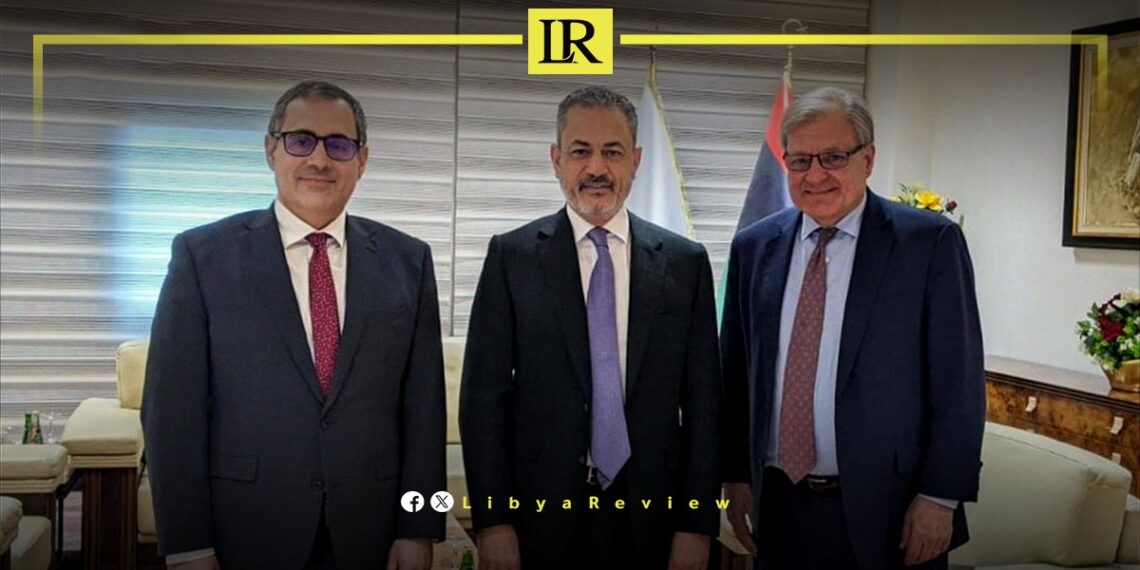In a meeting between US Special Envoy Richard Norland, Acting US Ambassador to Libya, Jeremy Berndt, and Farhat Bengdara, the head of Libya’s National Oil Corporation (NOC), the stability, investment in oil and gas production, and efforts to combat fuel smuggling was discussed.
The discussions aimed at bolstering the NOC’s initiatives to reduce gas flaring and methane emissions, reflecting a commitment to the environmental objectives set during the United Nations Climate Change Conference (COP28).
This engagement underlines the global interest in supporting a stable and thriving energy sector in Libya, an essential contributor to the international oil market.
Such partnerships are deemed vital for Libya to utilize its extensive oil and gas reserves in a manner that promotes energy security and environmental stewardship globally.
A recent Reuters survey indicated an increase in oil production by the Organisation of the Petroleum Exporting Countries (OPEC) in February, with Libya’s production recovery playing a significant role. The survey noted that OPEC’s output rose by 90,000 barrels per day from January, with Libya’s production increasing by 150,000 barrels per day month over month, largely due to the reopening of the Sharara oilfield, among Libya’s largest.
Furthermore, the reopening of the Zawiya refinery and the Mellitah oil complex was announced following discussions with Libya’s Government of National Unity (GNU) Prime Minister, Abdelhamid Dbaiba. The Petroleum Facilities Guard (PFG) called for the government to settle financial dues, marking a step towards resolving operational challenges in the oil sector.
Since 2011, Libya’s oil resources have been at the center of internal conflicts and negotiations, with control over these resources influencing power dynamics within the country.


